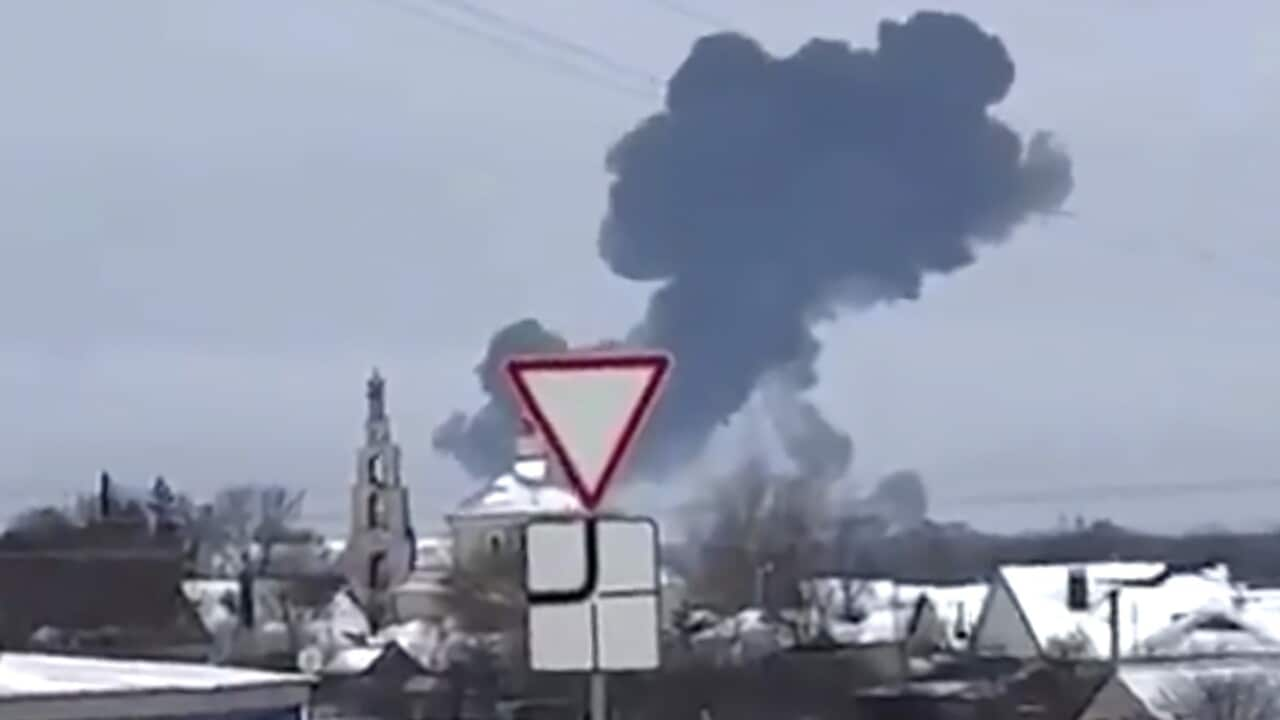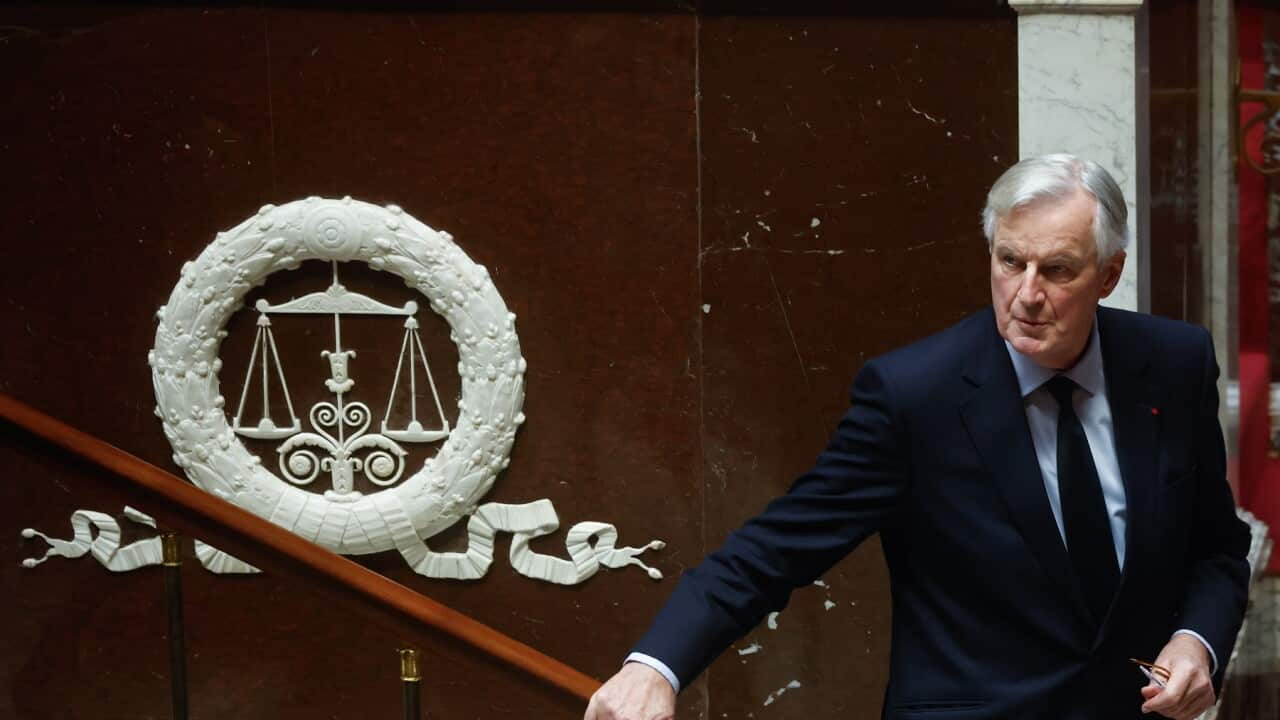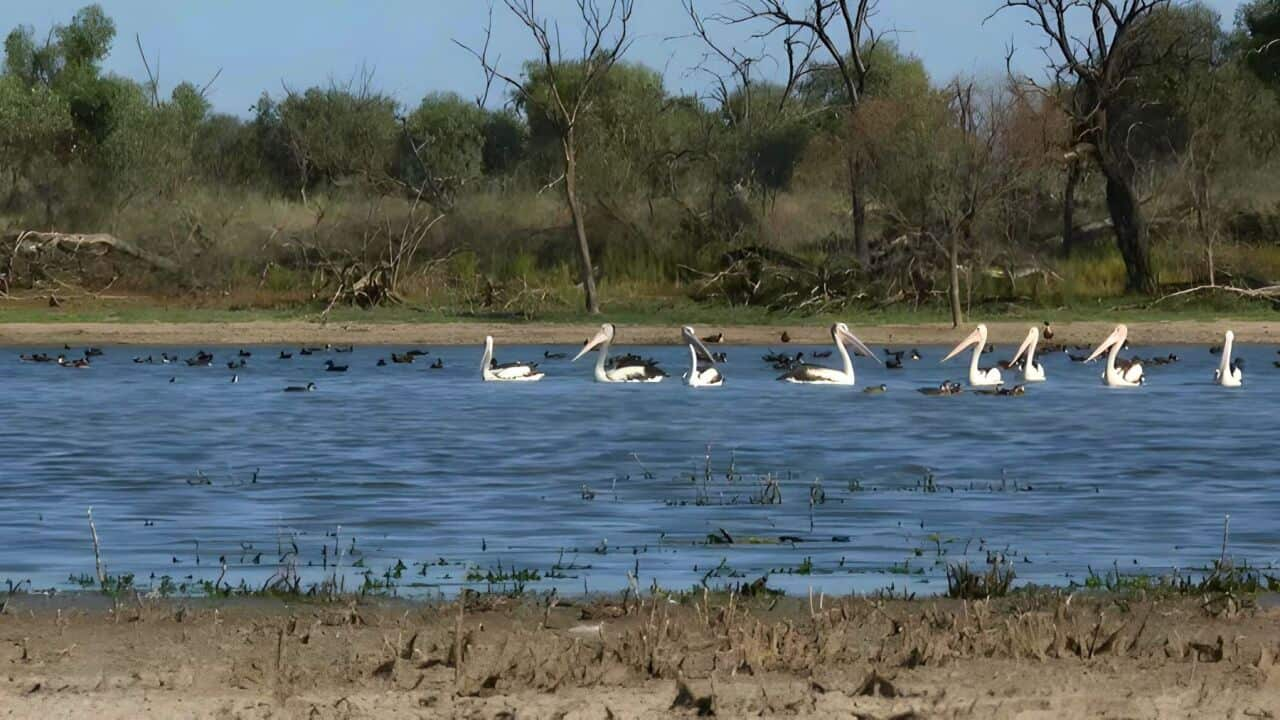TRANSCRIPT
Near Ukraine, residents in the southern Belgorod region of Russia recall the moment when the plane crash happened.
Alexander Gerasimenko says at first he didn't know what to make of it.
"We just saw some red elongated flying object. Then we heard an explosion and saw a red flash and that's it. We haven't seen anything else, where those explosions were, nothing. Just the explosion maybe about 3 kilometres away from the village."
There were no survivors on the Russian military plane - which had on board 65 Ukrainian prisoners of war, six Russian crew members and three Russian soldiers.
Russia says the Ukrainian PoWs were being transported for a prisoner exchange - and it accused Ukraine of shooting down the aircraft.
Ukraine has not directly confirmed it shot down the plane, but accused Russia of deliberately jeopardising the lives of prisoners of war.
Ukraine's military said it would continue to destroy Russian military transport aircraft it believed were carrying missiles to strike Ukraine.
In a statement, Ukraine's military intelligence says Ukraine was not informed to ensure the safety of the airspace in Belgorod during that time.
"According to the Russian side, this happened as a result of the downing of the Russian Il-76 plane, which was supposedly transporting our prisoners. Currently, we do not have reliable and comprehensive information about who exactly and how many were on board the plane. For its part, Ukraine had fulfilled all agreements for the preparation of the exchange. According to the agreements, the Russian side was required to ensure the safety of our defenders. At the same time, the Ukrainian side was not informed about the need to ensure the safety of the airspace in the area of the city of Belgorod in a certain period of time, as was repeatedly done in the past."
Ukrainian President Volodymyr Zelenskyy has since called for clarity on the circumstances of the crash.
"It is evident that the Russians are playing with the lives of Ukrainian prisoners, with the feelings of their families, and with the emotions of our society. It is necessary to establish all clear facts, to the extent possible, considering that the plane crash occurred on Russian territory – beyond our control."
Russian authorities condemned Ukraine, blaming them for the incident.
Foreign Minister Sergei Lavrov called the downing of the aircraft on Wednesday a "criminal" act by Ukraine, at an emergency UN Security Council session, which he called for on Wednesday.
"On the morning of January 24, Moscow time, a terrorist act was committed, as a result of which, in the area of the Belgorod region, a Russian transport aircraft IL-76 was shot down, which was carrying out a flight to transport 65 military personnel of the Armed Forces of Ukraine from the Moscow region to Belgorod, who were accompanied by three Russian officers and a crew of six people. They all died."
These accusations come as Ukraine waits to hear whether the European Union member states will be able to agree on an 82 billion dollar package (50 billion euros) of financial aid.
German Chancellor Olaf Scholz says the aim of a European Union special summit next week is for all member states to agree on the package for Ukraine.
"The aim is to decide on financial aid from the European Union for Ukraine. You know the situation. Our aim is to reach a joint agreement between all EU states as part of the revision of the EU financial framework so that 50 billion euros in loans and grants will be reliably available to Kyiv over the next four years."
There are also calls in Australia to increase aid for Ukraine.
The Australian Federation of Ukrainian Organisations say they are disappointed by the government's decision to reject Ukraine's request for Taipan helicopters, and urges the Albanese government to make fresh commitments to support Kyiv.
Co-chair Stefan Romaniw told SBS the war in Ukraine is still raging on.
"I think Australia like the international community, from the start of the war, has said this is a war of values. It doesn't matter whether we're 20 thousand kilometres away or whether we're on the border with Poland. The fact is we're fighting evil, we have an obligation to create a better future for our children, our grandchildren, the world. That's why Australia, like any other country, has the opportunity to be a sound partner in defeating evil."
Mr Romaniw says he understands governments have other priorities of assistance, but says the war in Ukraine is an international issue and requires a whole-of-government approach.
This includes in foreign affairs, and the issue of visa accessibility for displaced Ukrainians.
"We're now on the second anniversary of the full invasion, the Russian invasion of Ukraine. And Ukraine is calling out on all sorts of military aid at this point in time. We see Russian attacks daily now, we saw it again in Kharkov the other day, places where people gather every day. So the Australian government has the opportunity now to put a package together to continue to say we will stand with Ukraine ,but that military package is a very, very important part of making sure we defeat evil."












